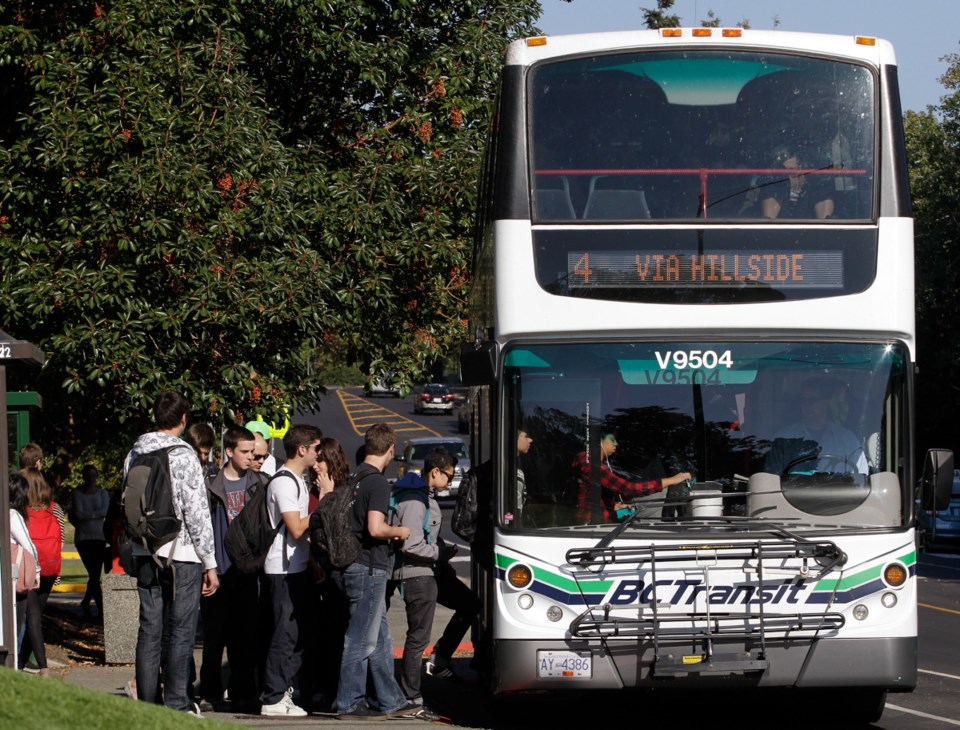B.C. Transit says it will begin rolling out an automated stop-announcing system for Greater Victoria buses in August.
The new system will be tested on 25 buses before being installed on the rest of the 280-bus fleet beginning in September.
The move comes three years after a B.C. Human Rights Tribunal ruling, responding to complaints from people with impaired vision, had directed B.C. Transit to make stop announcements. The corporation responded by ordering drivers to call out stops while they drove their routes.
Unifor Local 333, the drivers union, spoke against the order, saying that calling the stops would be unsafe and tantamount to distracted driving. Many drivers refused to follow the order.
B.C. Transit is buying an automated, GPS-assisted stop-announcing system called Trekker Breeze+. The total cost is estimated at just under $400,000, including brackets and installation.
Both the drivers union and the Canadian Federation of the Blind, which filed the human rights complaint, said they support the move to an automated system.
“This product supports the needs of our visually impaired customers and our operators while also respecting taxpayers,” said Manuel Achadinha, B.C. Transit’s CEO, in a statement. “I thank the Canadian Federation of the Blind and Unifor 333 for working with us to find a cost-effective product.”
Five members of the Victoria-based Canadian Federation of the Blind were able to ride a demonstration bus with the system installed. Representative Oriano Belusic said it “worked very well” and, with some fine-tuning, will make transit more accessible to people with impaired vision.
Union local president Ben Williams said it will allow bus operators “to focus on safe driving while still providing good customer service.”
A first-edition Trekker was one of the original products reviewed by the joint Unifor and B.C. Transit committee formed to investigate technological solutions. Some systems were hampered by limitations that included GPS connection time, signal strength in urban areas and accuracy of announcing intersections and landmarks, B.C. Transit said.
Drivers will need minimal training and, other than turning the unit on when starting the bus and monitoring the volume amplified through speakers, very little manual intervention will be required by bus operators, B.C. Transit said.
The new system will call out all intersections, not just stops, something Williams said will make the system more responsive.
The last three years have been fraught with challenges over the issue, he said.
Most drivers declined to call out the stops, which in turned produced anxiety in sight-impaired passengers worried about alienating drivers upon whom they relied.
Supreme Court Justice Joel Groves said in April that B.C. Transit would have to explain in court Nov. 9 and 10 what it had done to implement an automated system and, if no action was taken, why not.
Williams said he doesn’t expect the hearing to go ahead. “After all these years of fighting over this, finally cooler heads have prevailed.”



